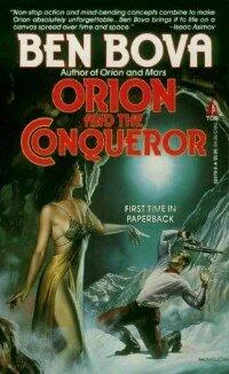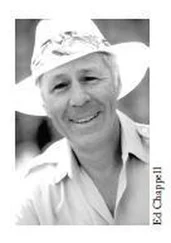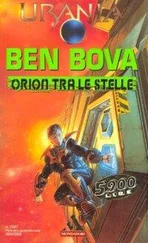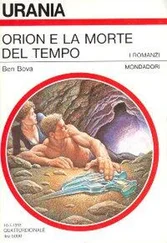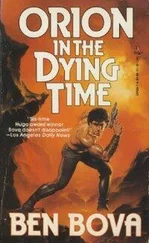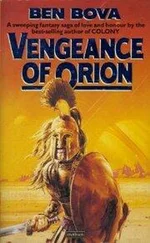I worked a finger through the chin strap of my helmet. I was sweating, and not merely from the hot morning sun. We were professional soldiers, mercenaries, but we were badly outnumbered and forced to fight at a time and place of the enemy’s choosing. The politicians of Perinthos may have known how to govern their city, but they made poor generals. Their biggest mistake was to expect that Athens would fight for them. The Athenians had not even paid Diopeithes; or so he told us. We were forced to live off the land, which hardly pleased the Perinthians we were supposed to be defending.
The distance between our spear points and theirs was shrinking steadily. Our commander stepped out in front of the phalanx and bellowed, “On my word— forward !”
We started marching toward the advancing enemy, each one of us stepping out with his left foot, spears levelled, shields raised. I felt exposed on the right end of our rank, with no shield to protect my right side, though I knew I could take care of myself once the fighting started. Yet, as I marched in step toward the advancing enemy, my thoughts churning, I found I could remember nothing about the battles I had fought. Nothing at all. My brows knit in puzzlement. My memory was as blank as a newborn baby’s. I could remember nothing earlier than a few hours ago, when we had picked up our weapons and formed our ranks.
This was no time for soul-searching. Skirmishers appeared from behind the files of the advancing phalanx, firing arrows into us, pelting us with stones and javelins. Someone screamed and went down with an arrow in his neck. A fist-sized stone banged off my shield. They wanted us to raise our shields against their missiles, or, better yet, break ranks. Then their phalanx would hit us at the run and shatter us completely. We were trained to ignore the skirmishers and close ranks whenever a man went down. I knew that but I could not remember when or where I had learned it.
Their cavalry off in the woods started to move. Horsemen could never attack a solid phalanx; our spears were like the spines of a hedgehog, and the horses shied away no matter how much their riders urged them. But cavalry could swing around our flank and attack us in the rear. And once a phalanx is broken the cavalry enjoys riding down individual soldiers. More men are slaughtered in the flight after the battle than during the battle itself.
The skirmishers melted away like the annoying insects they were. The bare stony ground between us and the enemy was shrinking rapidly. Our pace quickened. So did theirs. Trumpets on both sides blared and we yelled as loud as we could and broke into a run and the two phalanxes smashed into each other with a thunderous bloodthirsty roar and the screeching, clanging, terrifying clamor of iron spearpoints against shields and bronze breastplates—and flesh.
The world seemed to slow down for me. Time stretched out like an elastic ribbon. Everyone around me began to move in sluggish, torpid slow motion, as if they were all underwater or in a labored blood-soaked dream. I saw the men in our front ranks go down under those sixteen-foot-long sarissas, skewered or pummelled or just shocked off their feet before their own spears could reach the enemy soldiers. Men were trampled underfoot as the two phalanxes ground into each other, each still advancing despite the shredding of our front ranks. Spears snapped, men howled with anger or pain or blood-lust, shields split apart under the tremendous impact of collision.
I reached over the men in front of me and drove my spear into one of the enemy hoplites. I saw him raise his shield as my point came toward him so I hooked the edge of his shield with the rear barb of my point, jerked the shield aside, then rammed the point into his throat. He looked surprised and then his gushing blood spattered me as he began to fall and I wrenched the spear point free.
Our front ranks had collapsed under the enemy’s impact and I was suddenly shield-to-shield with them, shoving and struggling, pushing against the men in front of me as I jabbed with my spear. It was too long for this close-in work and out of the corner of my eye I saw their skirmishers sneaking around our right flank, firing arrows and javelins into our exposed side.
I ducked an arrow as it flew in lazy slow-motion toward me, then rammed my spear through the shield and breastplate and body of a hoplite. The battle was becoming a chaos of screaming, bloodied, falling men; all order gone among our side. My rank was being shredded by the enemy. I saw a javelin coming at me. Leaving my spear in the falling body of the man I had skewered, I batted the lighter javelin aside and then reached for my sword before the two hoplites in front of me could react in their dream-like slow motion. I cut them both down but there were more of them moving with mechanical discipline, spearing, stabbing, using their shields to knock men off balance, moving forward in an unstoppable tide.
There were too many of them and they were too well led, too disciplined, for us to overcome. My fellow mercenaries fought well, but we were clearly outmatched. We did not turn and run because we knew that would be sure death. But we were cut off from the Perinthian citizen troops, separated from what remained of their phalanx and driven backward across the field toward the trees. Sure enough, the Perinthians broke and fled. And, even surer, the enemy’s cavalry came thundering out of the woods, shrilling their exultant battle cries, and started to cut them down without mercy. The cavalry leader could not have been more than a boy, golden hair streaming in the wind as he bent eagerly over the mane of his magnificent black charger, sword held high and eyes intent on the fleeing men who had foolishly thrown down their shields and helmets in their frenzy to escape.
There was hardly more than a handful of us left as we retreated slowly, grudgingly, up the slight slope toward the trees. Our phalanx had been slashed to ribbons; there were only a few knots of individual men fighting now. Still, everything seemed to be moving as slowly as a beetle trapped in honey. Sword in hand, I could see the moves my enemies were going to make by the shifting of their eyes, the knotting of muscles in their legs or arms. I ducked under one of the long sarissas and drove my sword point through the man’s leather cuirass into his belly. He shrieked and I wrenched his long spear from him with my left hand.
And saw that I was alone now, my back to a tree, sarissa in one hand and sword in the other. A dozen wary soldiers ringed around me, eyes ablaze, armor smeared with blood, watching me, waiting for an opening. Most of them had lost their sarissas and were gripping swords. They were veteran troops; they intended to take no chances against a man who had killed so many of their own. But they were not going to let me escape them, either. The best I could hope for was to take as many of them down with me as I could before they finally did me in. Then I saw one of them signalling to a handful of archers. They were going to take no risks at all.
“Hold!” called a gruff-voiced man on horseback. He rode up and stopped at the edge of the ring facing me. His armor was white with gold filigree, but caked now with dust. His helmet was topped with a white horsehair plume, and he had unfastened the cheek flaps so I could see his face. A bristling black beard, streaked with what looked like crusted blood on one side. Then I saw that he had lost the eye on that side of his face long ago. It was half closed, and beneath its drooping lid I could see the blank whiteness of dead flesh.
He was obviously one of their generals. The men backed away from me slightly, but none of them lowered their weapons. Another general rode up and I realized that both of them were mounted on powerful chestnut brown horses, but had neither saddles nor stirrups, only a pad that seemed to be made of layers of blankets.
Читать дальше
